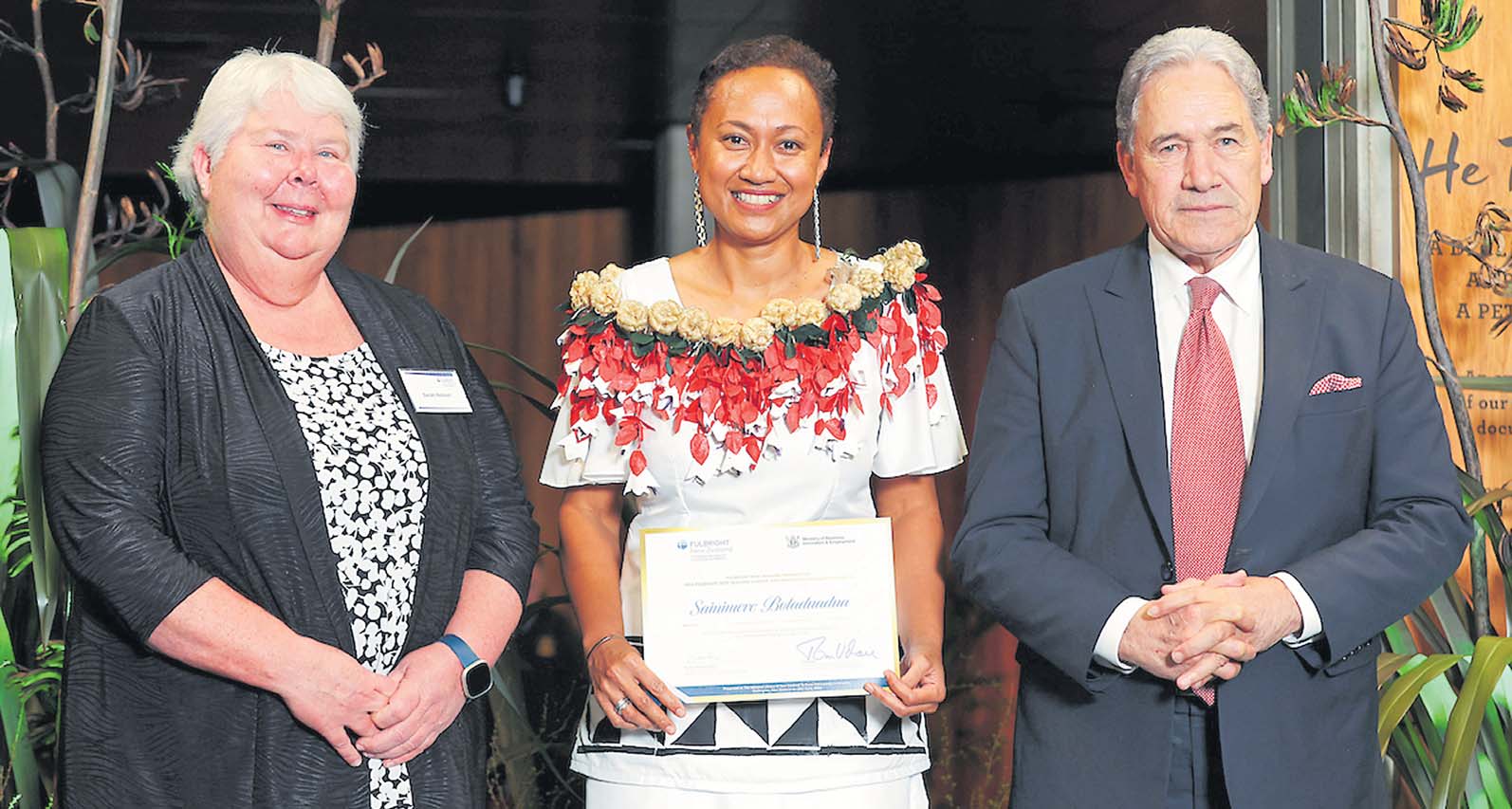Studying abroad can be daunting.
However, with a steady support system from family and friends, great things can be achieved.
For Sainimere Boladuadua, she made the bold decision years ago to move to Dunedin, New Zealand. Her ambition was to become a doctor and serve her people.
Originally from Somosomo, Cakaudrove, with maternal links to Levuka, Yale in Kadavu, she is one of 15 recipients of the prestigious Fullbright Science and Innovation Graduate Scholarship award.
The award enables New Zealand graduate students to undertake postgraduate study or research at US institutions.
“I learned that from the 15 Fulbright graduate awardees for 2024/25, two were from the Pasific and both were Fijians,” she said.
Sainimere says the Pasifika population makes up eight per cent of the NZ population and around half of this are Samoans.
“Fijians make up a relatively small proportion of the Pasifika population.
“So, to have two Fijians this year shows that we too can do it! I have since been encouraging other Fijians to apply for it.”
The 29-year-old graduated with a Bachelor of Medicine, Bachelor of Surgery (MBChB) from the University of Otago in 2002, a Diploma in Obstetrics and Gynaecology from the Fiji School of Medicine in 2006 and a Master of Public Health (Distinction) from the University of Otago in 2011.
She is a Fellow of the New Zealand College of Public Health Medicine and is currently studying for her PhD at Waipapa Taumata Rau, the University of Auckland.
After completing her medical degree, Sai worked in New Zealand and Fiji.
In her PhD studies, she is investigating access to healthcare, using childhood acute respiratory infections as the disease of focus.
Her thesis includes quantitative and qualitative methodological components applied to studies being conducted in Fiji, and with Pacific families in New Zealand.
She said her role models were her parents and grandparents, who instilled in her the importance of education.
Sainimere says her siblings and herself are very fortunate to have parents and grandparents who value and prioritise education.
“They are my role models. Our parents were the first generation to go to university.
“They were born and brought up in the village and their parents encouraged them to leave the village and seek further education, that they themselves didn’t have.
“This quest for an education by my parents and their generation, and the collective sacrifices made, I find so admirable.
“So, for my generation, we stand on their shoulders, we go further, building on what our parents’ generation have set for us and the next generation after us will do the same.”
She hopes to broaden and deepen her knowledge and experience in indigenous health and health systems research.
Her message on achieving one’s potential is to “dream big” and “don’t limit yourself.’
“This award has caught the attention of people…I’ve had so many people either reach out by phone or come up to me in person (some of whom I don’t even know!) to say how proud they were and how inspiring this is,” said Sainimere
“I underestimated its impact and realised how important these sort of stories are.
“I think, we, as Fijians, often have the mindset that there’s only a certain level or certain spaces we can reach or access, particularly in global spaces. We often have an inferiority complex.
Sainimere feels this perception has been the result of a colonial hangover, among other things.
“What I’ve realized is that when we go overseas, either for studies, or work (in whatever field), we do very well! We hold our own,” she said.
“We need to realise and internalize that. Seeing our people doing well in national and international spaces are an illustration of that.
“Underpinning all this is our faith – I believe that God has a unique vision and purpose for each of us.



